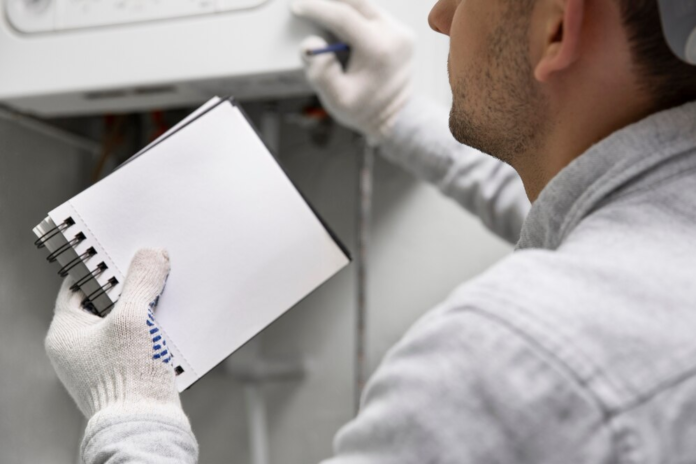In the realm of home comfort and efficiency, choosing the right HVAC (Heating, Ventilation, and Air Conditioning) system is crucial. Homeowners often face the decision between installing a heat pump unit or opting for an AC replacement. Both options offer distinct advantages tailored to different needs and climates, making it essential to understand their features, installation considerations, and overall benefits.
Understanding Heat Pump Unit Installation
Heat Pump Basics:
A heat pump operates by transferring heat between indoor and outdoor environments. During the summer, it acts as an air conditioner, extracting heat from inside the home and releasing it outdoors. In winter, it reverses this process, extracting heat from the outdoor air (even in cold temperatures) and transferring it indoors to warm the space.
Installation Process:
Heat Pump Unit Installation involves several key steps to ensure optimal performance and efficiency:
- Site Assessment: A professional HVAC technician assesses the property to determine the best location for the heat pump unit. Factors such as sunlight exposure, landscaping, and proximity to noise-sensitive areas are considered.
- Sizing: Proper sizing is critical for efficient operation. The technician calculates the heating and cooling load of the home to recommend the appropriate size of the heat pump unit.
- Ductwork Evaluation: If the home has existing ductwork, it is inspected for leaks, blockages, or necessary upgrades to accommodate the heat pump system.
- Installation: The outdoor unit (condenser) and indoor unit (air handler or furnace) are installed, connected, and tested for functionality. Electrical connections and refrigerant lines are carefully handled to ensure safety and efficiency.
- Testing and Commissioning: After installation, the HVAC technician conducts thorough tests to verify proper operation, temperature control, and airflow distribution throughout the home.
Benefits of Heat Pump Units:
- Energy Efficiency: Heat pumps are known for their high efficiency, often providing both heating and cooling functions with lower energy consumption compared to traditional HVAC systems.
- Year-Round Comfort: With the ability to heat and cool, heat pump units offer consistent comfort throughout the year, adapting to seasonal temperature changes seamlessly.
- Environmental Friendliness: By reducing reliance on fossil fuels for heating, heat pumps contribute to lower carbon emissions, making them environmentally sustainable choices.
Considering AC Replacement
AC Replacement Essentials:
When considering an AC replacement, homeowners typically focus on upgrading older systems or improving cooling efficiency. Here’s what’s involved:
- Assessment of Existing System: A professional HVAC technician evaluates the current air conditioning system’s performance, age, and efficiency ratings to determine if replacement is necessary.
- Choosing the Right System: Based on the home’s cooling needs, the technician recommends a suitable air conditioning unit that balances energy efficiency, cooling capacity, and cost-effectiveness.
- Installation Process: Similar to heat pumps, AC replacement involves removing the old unit, preparing the installation site, installing the new condenser, connecting refrigerant lines, and ensuring proper electrical connections.
- Testing and Calibration: After installation, rigorous testing ensures the new AC system operates efficiently and meets manufacturer specifications for cooling performance.
Benefits of AC Replacement:
- Improved Efficiency: New air conditioning systems often feature advanced technologies that enhance energy efficiency, leading to lower utility bills.
- Enhanced Comfort: Upgraded AC units provide better humidity control and consistent cooling, creating a more comfortable indoor environment.
- Reliability and Warranty: Modern AC systems come with warranties that provide peace of mind against unexpected repairs, ensuring reliable operation for years to come.
Choosing Between Heat Pump Installation and AC Replacement
Climate Considerations:
- Heat Pump Suitability: Ideal for moderate climates where winters are mild, heat pumps excel in regions with less extreme temperature variations.
- AC Replacement Advantages: In hotter climates with harsher summers, traditional AC units may offer better cooling performance and reliability.
Cost Considerations:
- Initial Investment: Heat pump units often have a higher initial cost due to their dual-functionality and installation complexity compared to straightforward AC replacements.
- Long-Term Savings: Despite higher upfront costs, heat pumps can deliver significant long-term savings through lower energy consumption and reduced maintenance needs.
Consulting HVAC Professionals:
To make an informed decision between heat pump installation and ac replacement, consulting with HVAC professionals is crucial. They can provide tailored recommendations based on your home’s specific needs, climate conditions, and budget considerations.
In conclusion, whether opting for a heat pump unit installation or considering an AC replacement, prioritizing energy efficiency, comfort, and long-term cost savings is key. Each option offers unique benefits suited to different environmental and homeowner preferences, ensuring optimal indoor climate control throughout the year. By understanding these considerations, homeowners can confidently choose the HVAC solution that best meets their needs and enhances their home’s comfort and efficiency.
























